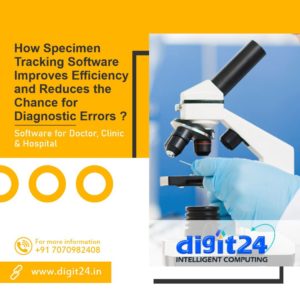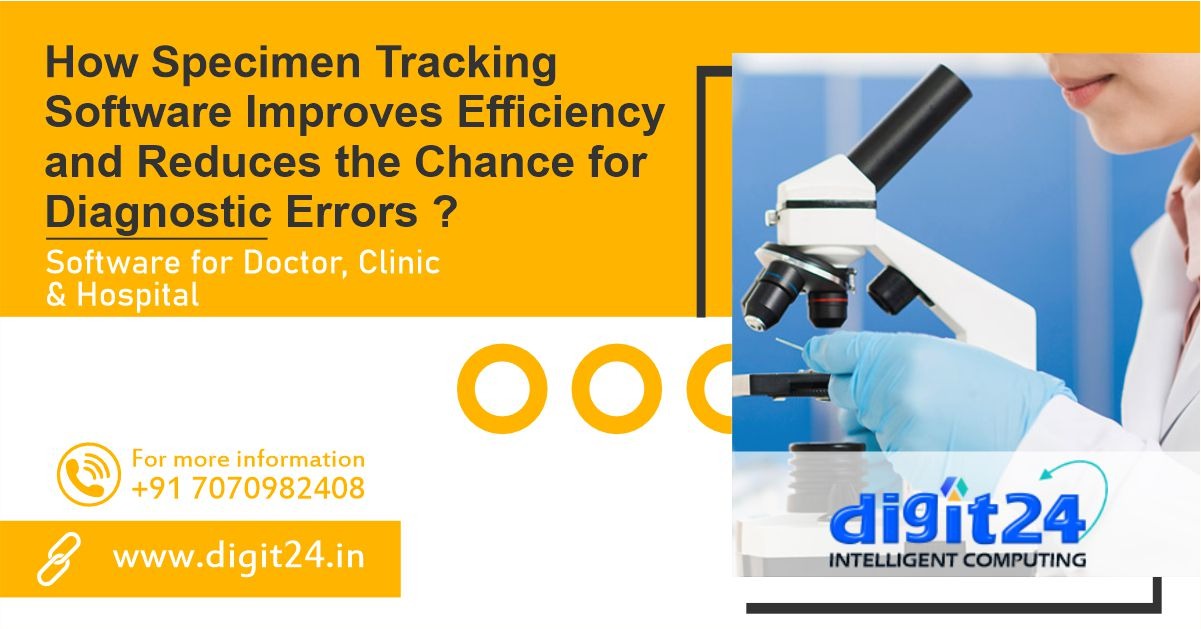The Centers for Disease Control and Prevention (CDC) estimates that approximately 14 billion laboratory tests are ordered each year. And with 70% of today’s medical decisions relying on laboratory test results, sample and sample testing has become an important part of the clinical puzzle. But with great power comes even greater responsibility, so molecular, clinical and anatomic pathology laboratories must implement systems and procedures that help ensure accuracy, efficiency and scalability.
Worryingly, the CDC also estimates that preventable diagnostic errors cause 40,000 to 80,000 deaths annually. A recent Johns Hopkins study goes even further, suggesting that the way the CDC collects its data is inaccurate and that medical errors are more common in the U.S. It is the third leading cause of death in the U.S., with over 250,000 deaths annually.
One of the most common and preventable reasons that lead to a misdiagnosis comes from a simple step in the process, Labeling and tracking of tissue samples and specimens. This is why error-free sample management is essential for laboratories of all sizes, and it all starts with flawless sample tracking practices.

To Get Best Pathology Lab Management Software : CLICK HERE
Lab Sample Tracking Software
Sample tracking refers to the system by which a patient’s sample is labeled and moved through the testing process. The Digit24 LIS and RCM Laboratory Operating Platform provides error-free sample tracking with complete traceability and a clear view at each step in the workflow, helping all laboratories to know where samples are in the testing process.
With our platform, lab managers know who touched the sample and where it was taken, said Digit24, who also noted that the platform also tracks bottlenecks in workflow. We built the digit24 to model the real world as closely as possible, so it has full awareness of sample-to-parent relationships in the form of derivative and divisible samples that arise throughout the workflow.
The digit24 platform works by assigning a sample-unique identifier, the moment an order is placed, ensuring the security of the sample across a laboratory’s processes and workflow. The platform tracks samples as it moves through various departments, racks, equipment and processes, creating a full chain of custody and a comprehensive and searchable audit trail. All samples are fully traceable, including batch orders and sendout orders between facilities. In addition, if additional tests are ordered, the digit24 laboratory sample software allows the laboratory to rapidly identify patient information and any previous test data associated with the sample. This tracking software is also supported by the digit24 rule and automation engine.
With digit24, the need for human intervention and associated costs are significantly reduced, ensuring efficient sample tracking and streamlined laboratory operations.
Manual Sample Collection and Tracking
Sample tracking systems, such as the digit24 sample tracking and handling module, reduce errors by ensuring that each sample is barcoded and has multiple identifiers. This module automatically creates a log of where a sample is and which technician touched it.
Even though this level of tracking is available, many laboratories create sample tracking logs manually. Laboratories that rely on manually handwritten logs not only tie up their technician’s time, but they also face an increased risk of avoidable errors.
No matter how accurate the diagnosis, it is useless if it does not match the correct patient. The resulting errors can lead to increased medical costs, delays in treatment and sometimes incorrect treatment. Such an error has the potential to affect two patients simultaneously, including the person who was misdiagnosed, and the person who missed their treatment schedule because of the mistake. Preserving the integrity of patient information with reliable sample management is therefore a top priority. This is a responsibility that should no longer be left in the hands of manual processes.
We help labs make sure that every sample is tracked, and that each step and each sample scan is an additional verification point, ensuring nothing can fall through the cracks, as the platform is real. With built on time queues, technicians can quickly identify any specimen that remains in a queue where it should not be. Additionally, the turnaround time of each sample is tracked and the system automatically changes the case color to draw attention to the technique of potential error.
It is true, not all errors are caused by sample mislabeling. Laboratory error can have many causes, from incorrect handling of samples to slide contamination. However, mislabeling is a significant contributor to patient misdiagnosis. Patient identification errors for pathology samples have been estimated to occur approximately 0.4% of the time and are affected by mislabeling 0.1%. Although an error rate of 0.1% is too low by most standards, the numbers become somewhat more worrying when the 14 billion sample tests per year are concerned.
It’s easy to try and blame mistakes on overburdened lab technicians or management. Most laboratories operate with the greatest of care, going to extreme lengths to check details over and over again. But the testing process can consist of eight or more separate steps, and when you perform each step manually, especially in high-throughput laboratories, human errors are unfortunately unavoidable.
Sample Management Software
Uniquely identifying samples and samples early in the process and using barcoding and sample tracking software to identify and track samples can create efficiency and reduce errors. This is why today’s leading laboratories use some form of coding during the sample tracking process. Most use a numerical code to identify patients and track samples. However, the sample must often be re-labeled during the process, which opens the lab to errors. This can be avoided by using barcoding and scanning with sample management software present in systems such as the award-winning digit24 LIS and the RCM operating platform.
When you combine barcoding with digit24 sample tracking capabilities, laboratories can verify the identity of each sample throughout their workflow. If any mixing occurs, the system will automatically notify the laboratory of the error. This error is then recorded in the system and the laboratory can investigate how the error occurred, and hopefully prevent future errors.
This type of sample tracking system ensures that samples are handled in a way that does not lead to confusion. Each time a sample is scanned, the laboratory can track who handled it, providing complete traceability.
The best part about Digit24 LIS and RCM Laboratory Operating Platform is that it grows as the lab grows in volume and sophistication. Our solution is agile and enables laboratories to track extremely detailed steps within the testing process. This level of detail improves the accuracy of sample handling and reduces errors.
Most labs scan barcodes using hand scanners. But solutions with built-in scanning capabilities are becoming more popular. Take, for example, radio frequency identification (RFID) enabled labels, which the digit24 platform can recognize without scanning.
Typically this technique will be used at the level of the rack. Our platform has awareness of all the samples that are within the rack, so as the rack moves across the lab, the software automatically logs these logistics.
Although RFID technology is readily available, it has not yet been widely adopted in the laboratory. Watch for this to change as more vendors follow Digit24 Leads and develop software that supports this form of tracking as well.
The Molecular, Clinical and Anatomic Pathology Laboratory Suite is at the heart of the Digit24 LIS and RCM Laboratory Operating Platform. It acts as a data warehouse for all cases and includes quick order entry, label and barcode generation, a robust sample tracking system, document scanning, a grossing touch-screen, electronic histology, quick results entry and sign-out, Image acquisition, includes direct. Digital interface with microscope and whole slide scanner, reporting, quality control, integration with pre cytology results, auto reflex testing, and more. It is designed for use in general or specialized pathology practices large and small and for easy integration with existing hospital management systems.
Other challenges with manual sample collection and tracking
One of the major problems associated with improper sample information collection is the sheer volume of testing done by laboratories, especially those struggling to meet the demands of COVID-19 testing. The workload of lab technicians is increasing and hence there is pressure to reduce the time spent on samples. To make matters worse, many laboratories across the country are also grappling with shortage of staff. Simply put, there was a shortage of qualified personnel before the pandemic, and COVID-19 took a growing problem and turned it into a crisis.
When it comes to filling in, verifying and logging patient details, the sample tracking process of the laboratory has many points of error. For example.
Missing labels or unclear handwriting may result in errors
Handling slides in batches increases the risk of matching the wrong block of slides
Re-labeling slides increases the chance of error
Keying data into computers can also present risks
Pre-printed labels do not contain additional identifiers and may also leave loose labels or samples
digit24 approach is to generate sample labels in real time, which means they are needed and at the right time. This greatly improves sample security and tracking. Unfortunately, many legacy labs pre-print labels and this is a disaster.
No matter how careful the laboratory technician is, there is always the risk of human error. When it comes to capturing critical patient information multiple times a day, it is almost certain that mistakes will be made without sample collection and tracking support.
About digit24
Digit24 is an award-winning provider of innovative end-to-end healthcare software for pathology laboratories, serving 150+ facilities across the country. As a comprehensive enterprise-grade solution, the Digit24 LIS and RCM Laboratory Operating Platform includes modules for Anatomic Pathology, Clinical Pathology, Molecular Diagnostics, Revenue Cycle Management and Direct-to-Consumer, all on a powerful and integrated platform who are in every role, every department, and every case. digit24 empowers laboratories to better serve patients, differentiate themselves in the marketplace, scale up their operations, become more compliant and more profitable.

